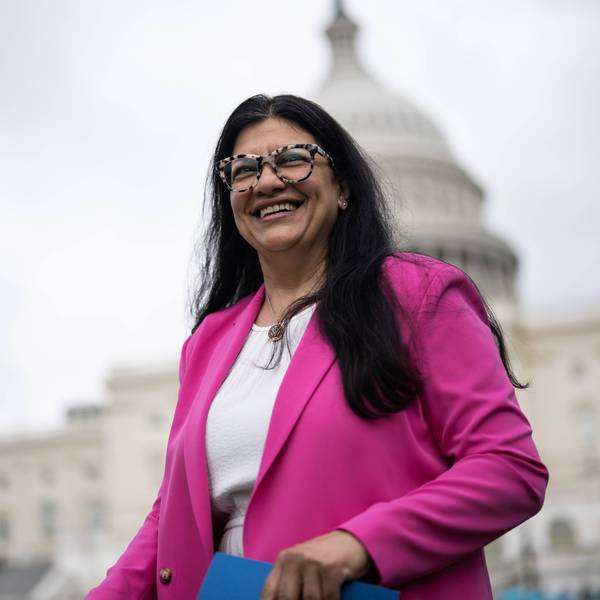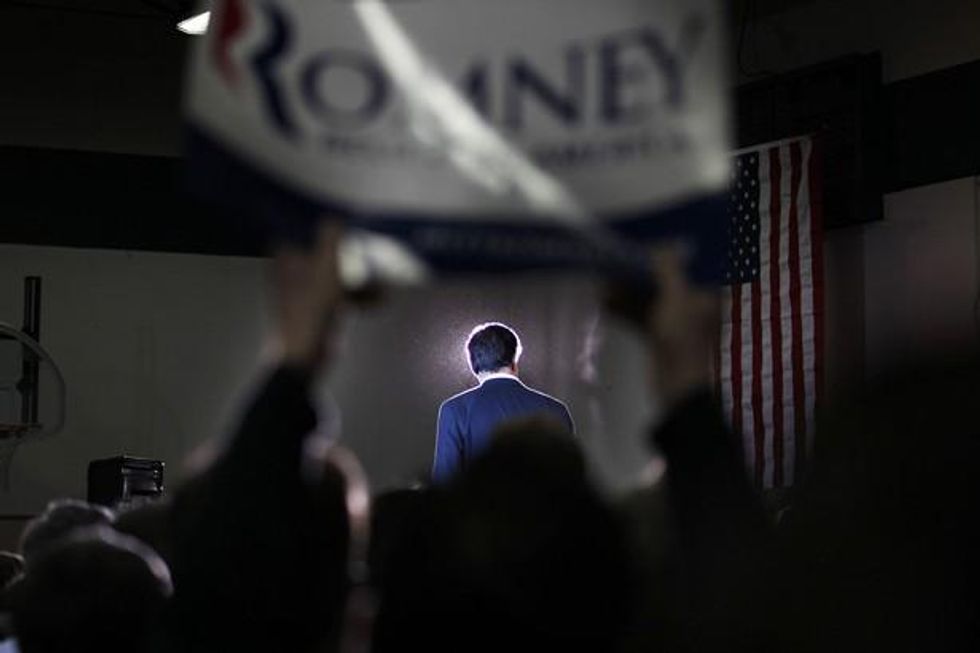Conservatives love to rail against "big government." But the surge of cynicism engulfing the nation isn't about government's size. It flows from a growing perception that government doesn't work for average people but for big business, Wall Street and the very rich--who, in effect, have bought it. In a recent Pew poll, 77 percent of respondents said too much power is in the hands of a few rich people and corporations.
That view is understandable. Wall Street got bailed out by taxpayers, but one out of every three homeowners with a mortgage is underwater, caught in the tsunami caused by the Street's excesses. The bailout wasn't conditioned on the banks helping these homeowners, and subsequent help has been meager. The recent settlement of claims against the banks is tiny compared with how much homeowners have lost. Millions of people are losing their homes or simply walking away from mortgage payments they can no longer afford.
Homeowners can't use bankruptcy to reorganize their mortgage loans because the banks have engineered laws to prohibit this. Banks have also made it extremely difficult for young people to use bankruptcy to reorganize their student loans. Yet corporations routinely use bankruptcy to renege on contracts. American Airlines, which is in bankruptcy, plans to fire 13,000 people--
16 percent of its workforce--while cutting back health benefits for current employees. It also intended to terminate its underfunded pension plans, until the government agency charged with picking up the tab screamed so loudly that American backed off and proposed to freeze the plans.
Not a day goes by without Republicans decrying the budget deficit. But its biggest driver is Big Money's corruption of Washington. One of the federal budget's largest and fastest-growing programs is Medicare, whose costs would be far lower if drug companies reduced their prices. It hasn't happened because Big Pharma won't allow it. Medicare's administrative costs are only 3 percent, far below the 10 percent average of private insurers. So it would be logical to tame rising healthcare costs by allowing any family to opt in. That was the idea behind the "public option." But health insurers stopped it in its tracks.
The other big budget expense is defense. The US spends more on its military than China, Russia, Britain, France, Japan and Germany combined. The "basic" military budget (the annual cost of paying troops and buying planes, ships and tanks--not including the costs of actually fighting wars) keeps growing. With the withdrawal of troops from Afghanistan, the cost of fighting wars is projected to drop--but the base budget is scheduled to rise. It's already about 25 percent higher than it was a decade ago, adjusted for inflation. One big reason is that it's almost impossible to terminate large military contracts. Defense contractors have cultivated sponsors on Capitol Hill and located their facilities in politically important districts. Lockheed, Raytheon and others have made national defense America's biggest jobs program.
"Big government" isn't the problem. The problem is the Big Money that's taking over government. Government is doing fewer of the things most of us want it to do--providing good public schools and affordable access to college, improving infrastructure, maintaining safety nets and protecting the public from dangers--and more of the things big corporations, Wall Street and wealthy plutocrats want it to do.
Some conservatives argue that we wouldn't have to worry about this if we had a smaller government to begin with, because big government attracts Big Money. On ABC's This Week a few months ago, Congressman Paul Ryan told me that "if the power and money are going to be here in Washington...that's where the powerful are going to go to influence it." Ryan has it upside down. A smaller government that's still dominated by money would continue to do the bidding of Wall Street, the pharmaceutical industry, oil companies, agribusiness, big insurance, military contractors and rich individuals. It just wouldn't do anything else.
Millionaires and billionaires aren't donating to politicians out of generosity. They consider these expenditures to be investments, and they expect a good return on them. Experts say the 2012 elections are likely to be the priciest ever, costing an estimated $6 billion. "It is far worse than it has ever been," says Senator John McCain. And all restraints on spending are off now that the Supreme Court has determined that money is "speech" and corporations are "people."
I don't know where the Occupy movement is heading, but I do know there's more grassroots energy for progressive change than I've seen in decades. The question is how to channel it into a sustainable movement. If you believe as I do that Obama and the Democrats didn't push hard enough in the president's first term for the things we believe in, we must push harder next term.
We also must engage with people who may disagree. Reach across to independents, even to Republicans and self-styled Tea Partiers. Find people who are open to arguments and ideas, regardless of the label they apply to themselves. We must also get out of our issue cocoons. It's fine to fight against climate change, or to push for gay rights or a single-payer health system. But we can't be so mesmerized by any single issue that we fail to take on the stuff that makes it harder for average Americans to be heard on these issues and more: the growing concentration of income, wealth and political power at the top; the increasing clout of global corporations and Wall Street; and the corruption of our democracy.
Don't focus solely on Washington or entirely on elections. Corporate campaigns--consumer boycotts of companies behind the largest political contributions, media attention to those that award top executives the fattest compensation packages while laying off the most workers--can play an important role. And when candidates are the targets, don't wait for them to emerge with agendas and policy positions. Take an active role in creating those agendas--and get candidates to run on them.
We should demand, for example, that the marginal income tax on the top 1 percent return to what it was before 1981--at least 70 percent; that a transactions tax be imposed on all Wall Street deals; that distressed homeowners be allowed to reorganize their mortgages under bankruptcy; that Medicare be available to all; that the basic military budget be cut by at least 25 percent over the next decade; that the Glass-Steagall Act be resurrected and Wall Street's biggest banks be broken up; and that all political contributions be disclosed, public financing be made available to candidates in general elections and a constitutional amendment be enacted to reverse Citizens United.
Tell incumbents you'll work your heart out to get them re-elected on condition they campaign on such an agenda. If and when they're elected, keep up the heat and the support. Too many of us think political activism begins a few months before election day and ends when winners are announced.
The day after election day is the real beginning. Newly elected officials must know that we will continue to mobilize support for a progressive agenda, reward them for pushing it and hold them accountable in the next election cycle if they don't. We will even go so far as to run candidates against them in their next primary--candidates who will run on that agenda.
Progressives must take back our economy and our democracy from a regressive right backed by a plutocracy that has taken over both. The stakes are especially high. It will not be easy to accomplish. But it must be done. And it is within your power--our power--to do it.




